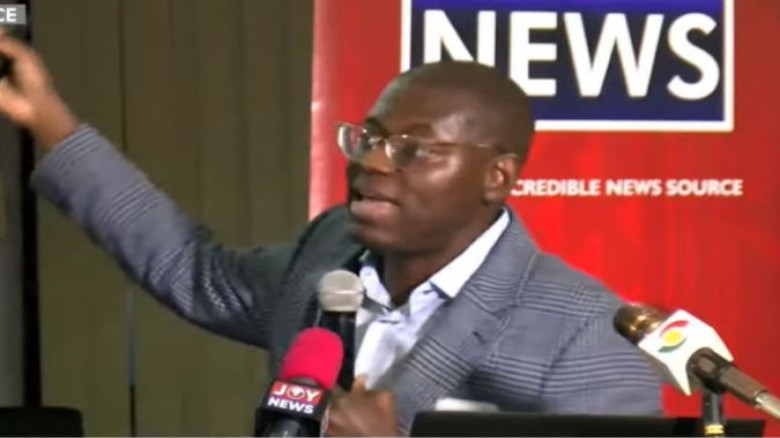DDE: Ghana at Risk of ‘Full Economic Catastrophe’ … - Bright Simons; Says 2023, 2024 ‘Very Rocky’
Vice President of IMANI Africa Bright Simons has warned of a very rocky 2023 and 2024 if the government continues the way it is going; he warned that not even an IMF program can save the country.
According to him, the lack of broader consensus can lead to a “full blown economic catastrophe” that will hurt the economy in a bad way.
In an article published on the ongoing Domestic Debt Exchange program, Bright Simons lists three things the government should not do.
“If the government sticks to the same approach that it used in the domestic debt exchange, and continues to make the economic recovery effort a mere partisan-administrative activity, instead of one based on broader consensus, not even an IMF board approval in the Spring will correct the course of the fiscal crisis and avert a full-blown economic catastrophe”, he wrote.
“To repeat for emphasis, the government must not:
• fail to mobilise a serious national consensus behind a short- to medium- term austerity plan;
• dilly dally in presenting a credible strategy of how it will cut public expenditures to plug the fat fiscal hole, by shrinking at least 25 billion GHS of its expenditure sheet; and
• ignore calls to establish an independent “value for money” and “monitoring and evaluation” program with a remit spanning across the entire set of budgeted government programs.
Otherwise, Ghana should brace for a very rocky journey through 2023 and 2024.
He went further;
“No country in the world has ever launched a DDE or any sovereign debt restructuring program of this magnitude without extensive informal consultations with major creditors ahead of the official commencement of the program. There is a reason why the average time for conducting a debt exchange in the last two decades is in the range of 11 months. People like to refer to Uruguay’s program in 2003, which officially took 7 weeks from formal launch to settlement. However, the launch was preceded by more than three months of intensive discussions with all the key creditors.
“Ghana’s decision to rush through the process and string together a series of unilateral deadlines on a take it or leave it basis, whilst reflective of the governing style of the current government, was thus completely unprecedented.
“It had led many to wonder whether the playbook created by Lazard Frères’ Eric Lalo and Michele Lamarche, which has been in use during this whole enterprise was worth the multi-million dollar advisory fees.
Let us not mince words here, the admission that the Bank of Ghana had to print money equivalent to roughly half the government’s domestic revenue in order to service debt over the last year and stave off a default has thrown the country’s overall fiscal situation into very stark relief. Analysts are now even clearer in their forward view that debt relief of 11 billion GHS a year, as delivered by the just-ended DDE, is far from sufficient to get Ghana back on the path to macrofiscal stability.
“The country is now literally using short-term treasury bills at nearly double the cost of the bonds it says it can no longer afford to finance day to day government operations. In no time, all the gains from the DDE debt relief will be wiped off simply from the escalating costs of fresh domestic borrowing. $1 billion from the IMF this year will certainly not substitute for the $4 billion in curtailed international inflows. Greater relief is urgently required.
Moreover, judging from the posturing of China, it does not look likely that a quick Paris Club deal can be arranged in the government’s preferred March timeframe via the Common Framework. The IMF may have to waive the bilateral debt restructuring requirement if the plan is to get the much coveted board approval for Ghana’s provisional staff agreement in the Spring. At any rate, bilateral debt relief should provide something in the range of $100 million or so a year, a clearly insignificant amount in the wider scheme of things.
“If the analysis above is correct, then the next big drama ahead for Ghana is swift and smooth Eurobond restructuring talks with its external creditors. Reports that Franklin Templeton participated in the domestic debt exchange are encouraging but they do not completely assuage concerns about the coolness shown by many other offshore investors towards the just-ended DDE.”











Leave A Comment